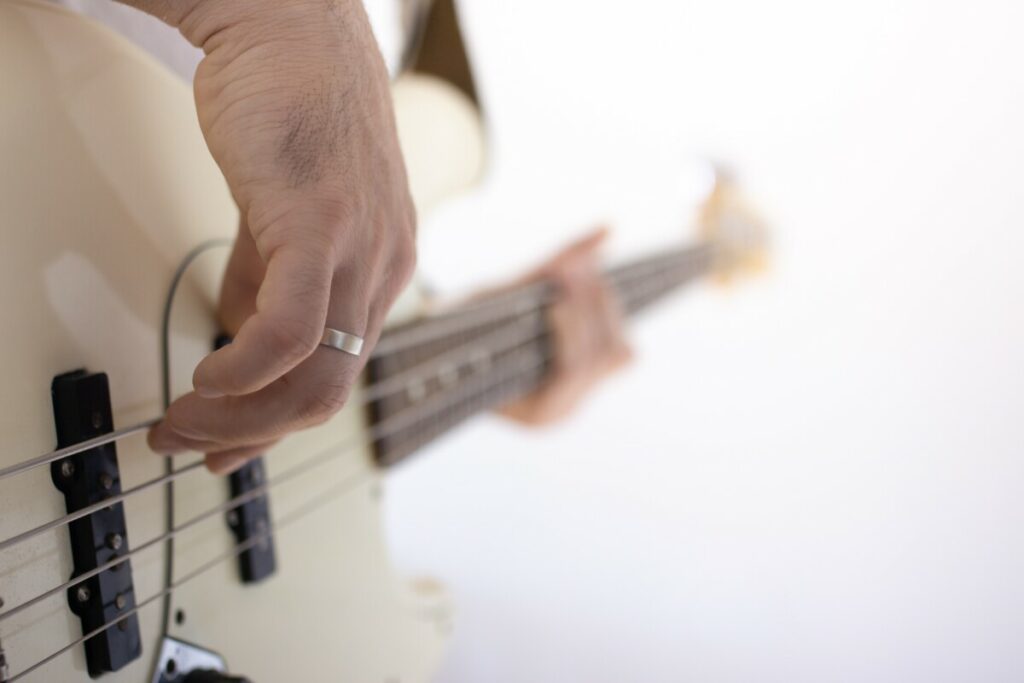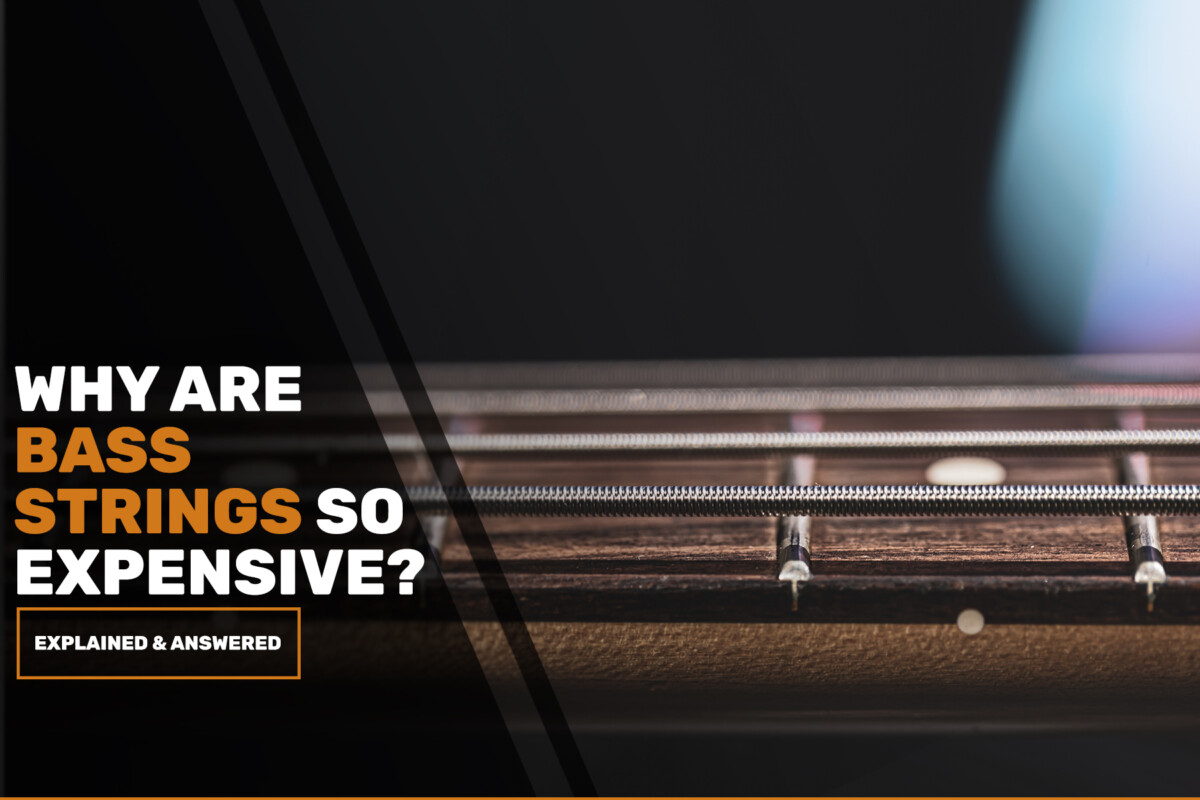Are you tired of breaking the bank every time you need to restring your bass guitar? Well, buckle up because in this article, we are going to explore the reasons why bas strings are like the caviar of the guitar world.
From the fancy materials used in their productio, to the labor-intensive manufacturing process, and the brand reputation that comes with it. We’ll also take a look at why bass players are willing to fork over their hard-earned cash for a set of strings.
So, grab your wallets, and let’s dive into the deep end of why bass strings are so darn expensiv.
In-Short: Why Are Bass Strings So Expensive?
Bass strings aren’t cheap, let’s just put it that way. They’re like the caviar of the guitar world. The reason for their premium price tag?
Well, it’s a combination of fancy materials, labor-intensive manufacturing process that would make a Swiss watchmaker jealous, a reputation thats worth more than gold, research and development that would make NASA jeaous, low demand that makes them rare, shipping and handling cost and taxes and duties that would make a smuggler cry.
Reasons That Make Bass Strings Expensive

There are a few reasons hidden behind the expensive cost of bass strings, and I am here tyo mention them all to you!
Materials: Bass strings are typically made of high-quality materials such as nickel, steel, and tungsten. These materials are like the truffles of the string world, they are expensiv to source and process, which contributes to the overall cost of the strings.
Manufacturing Process: The manufacturing process for bass strings is labor-intensive and requires a high level of precision. This includes winding the strings, cutting them to length, and polishing them to a high shine. Think of it like a fancy spa day for your strings, it’s time-consuming and costly.
Brand Reputation: Some brands of bass strings are well-known for their high quality and are considered to be premium products.
These brands often have a higher price point due to their reputation and the percived value they offer to customers. It’s like paying extra for designer handbag, it’s all about the brand.
Research And Development: Some brands invest heavily in research and development to produce new and inovative bass strings. This additional cost is passed on to the consumers, like a R&D tax.
Low Demand: Unlike guitar strings, bass strings are not as popular, meaning less production and less competition between different brands. This can result in higher prices for the end user, like buying a rare commodity.
Shipping And Handling: The weight and size of bass strings can make shiping and handling more expensive than other types of guitar strings, like shipping a heavyweight champion.
Taxes And Duties: Import and sales taxes and import duties can also drive up the price of bass strings, like a customs fee on a luxury item.
All of these factors contribute to the high cost of bass strings, and the ultimate price the consumer pays. It’s worth to notice that while it’s true that bass strings are more expensive than guitar strings, the cost of restringing a bass guitar is relatively low compared to the overall cost of the instrument.
So, go ahead and splurge on those fancy bass strings, your bass will thank you.
How Much Should One Pay For Bass Strings?

When it comes to buying bass strings, it can be a bit of a tricky busines. Think of it like this, whats the price difference/ratio to a budget guitar and high-end bass strings? Well, some of the best guitars under $200 will have a pretty similar price to some of the best bass strings.
You could be like a beginner who’s just starting out and doesn’t know the differenc between nickel-wound and stainless steel, in that case, a set of basic, standard nickel-wound bass strings will do the trick and they won’t break the bank either, you can expect to pay around $10 to $20 for a set.
In case youre like a seasoned pro who’s looking for a specific tone or likes to experiment with different string types and gauges, you might want to invest a bit more money in a set of premium or specialty strings. These can cost anywhere from $20 to $50 or more, and you’ll be able to hear the diffference in your sound.
Just keep in mind that when it comes to buying bass strings, price isn’t everything. Sure, you could buy the most expensive set on the market and they might sound great, but they might not work well with your playing style or your bass. Let’s not forget, you can have the best strings in the world, but if you don’t know how to play, it’s like buying a Ferari and only driving it in first gear.
In short, the amount you should pay for bass strings will depend on your individual needs and preferences, so it’s important to do your research, experiment with different brands and types, and don’t be afraid to ask for advice from more experienced players or your local music store.
Right Way Of Purchasing Bass Strings
As said above, buying bass strings is kind of a tricky business but it’s not rocket science either. Before I write what are the things to consider for buying bass strings, if you are a beginner, I’d also recommend you do some proper research on what the best bass guitars for beginners are. And now, here’s a quick guide to help you make the best decision for your individual needs and preferences when it comes to bass strings.
String Material: Nickel-plated, stainless steel, and phosphor bronze are the most common materials, each with its own unique tone and durability characteristics. Just remember, if you want to sound like Jaco Pastorious, you’ll need to get the right material.
Gauge: Thicker strings = more tension and a deeper tone, thinner strings = less tension and a brighter tone. It’s like chosing between a bass and a baritone, it’s all about the size.
Brand: Research different brands and read reviews from other players. Just like with cars, some brands have a better reputation than others.
Budget: Don’t break the bank, but don’t skimp either. You’ll get what you pay for and that doesn’t always mean the most expensive is the best.
Consultation: If you’re unsure, consult with experienced players or music store representatives. They’ll be able to help you find the perfect string for your playing style and instrument.
In summary, when buying bass strings, consider the material, gauge, brand, budget, and don’t be afraid to ask for advice. And remember, having the best strings won’t make you a great player, but it will definitely enhance your playing experience.
Final Words
So, folks here we are at the end of this article in which I explained to you the reasons why bass strings are expensive gadgets.
I hope you liked what you read thus far, and I hope this article provided you with everything you needed to know!

